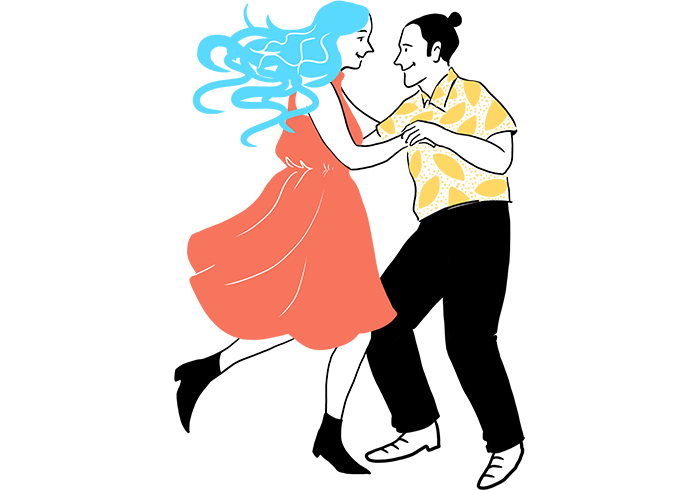Definitions
Queer
Queer is an umbrella term for those outside the norm or common regarding sexual orientation, gender expression, sex characteristics, and/or gender identity, such as gay men, lesbians, transgender people, intersex people. The term can be viewed as practical, radical, historical, and academic, but also controversial.
Sexual orientation
Sexual orientation describes who people are attracted to romantically and sexually.
- Homosexual (lesbian/gay): attracted to the same gender
- Bisexual: attracted to two genders
- Pansexual: attracted to people regardless of gender
- Heterosexual: attracted to another gender
Gender identity describes how people experience their gender, unrelated to sex characteristics, sexual orientation, or appearance. Some people have surgery or take hormones to align their body with their gender identity, others don't.
- Trans woman: woman assigned male at birth
- Trans man: man assigned female at birth
- Non-binary people don't identify as male or female, or identify as a mix of both
- “Kvár”: the Icelandic word for an adult non-binary individual
- “Stálp”: the Icelandic word for a non-binary child
- Cisgender: people comfortable with their assigned gender at birth
Sex characteristics
Sex characteristics are biological factors used to categorize people by sex, like chromosomes, genitals, and hormones. Some people are born with atypical sex characteristics and fall under the intersex umbrella.
- Intersex people are born with atypical sex characteristics that conflict with standardized ideas about female and male bodies
- Endosex people are born with typical sex characteristics that fit standardized ideas about female and male bodies
Gender expression is how people express their gender identity daily through clothing, hairstyles, and body language. Gender expression is part of everyone's life. Some express their gender in unconventional ways, while others' expression aligns better with societal gender expectations.
- Typical gender expression includes masculine expression in men aligning with dominant masculinity ideas and feminine expression in women aligning with dominant femininity ideas
- Atypical gender expression somehow deviates from dominant ideas about gender expression, such as feminine expression in men or mixing femininity and masculinity.
Heteronormative standards
Norms assume everyone is heterosexual and cisgender, considering it natural. This belief suggests heterosexuality is natural and superior to other orientations. Dominant ideas about "normal" gender assume genitals determine gender identity, that only two genders exist (male and female), and that real women follow accepted femininity ideas while real men follow accepted masculinity ideas, with typical gender expression for both. This questions those who experience and express gender differently.

Microaggressions
Minority stress affects LGBT+ people, negatively impacting their physical and mental health. Minority stress results from potentially facing prejudice, silencing, discrimination, negative discourse, and even violence due to one's queerness at any time. This accompanies our societal structure, i.e., heteronormative cisgender standards. In other words, LGBT+ people never know what reactions to expect because of their queerness. This can create distrust and insecurity in some LGBT+ people, regardless of whether it's justified in individual cases. It may also cause LGBT+ people to hide their queerness to avoid reactions, potentially increasing stress.
Related is microaggression, which many LGBT+ people experience. These are everyday actions, comments, jokes, environmental factors, and more that are degrading or humiliating to LGBT+ people. Each instance may seem minor alone, but when persistently part of LGBT+ people's existence, they often have significant negative effects. To reduce minority stress and microaggressions, it's important for LGBT+ people to know that schools, workplaces, leisure activities, etc., are LGBT+-friendly and ensure positive, respectful reactions to their queerness.